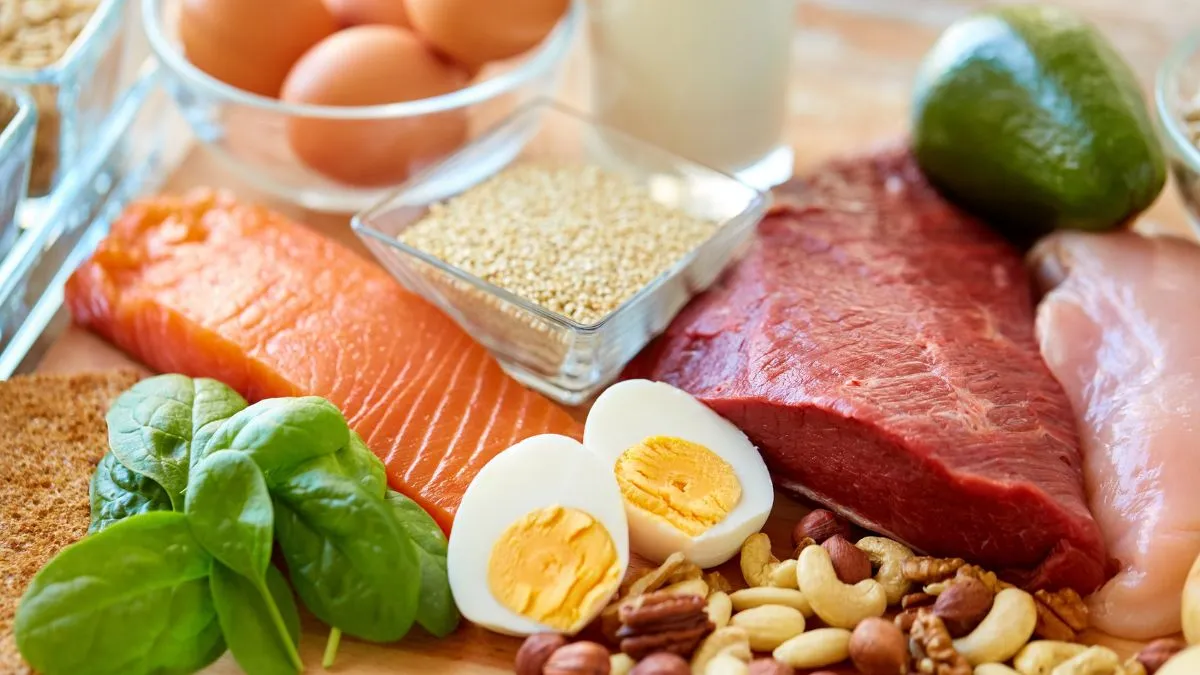Achieving optimal fitness levels hinges on adequate protein intake, making it a crucial aspect of a successful fitness journey. As individuals strive to make significant improvements in their physical health, the importance of sufficient protein consumption becomes increasingly evident. However, it is essential to strike the right balance as both underconsumption and overconsumption of protein can have negative consequences. Many individuals, despite their enthusiasm for fitness remain unaware of the potential risks associated with excessive protein consumption.
This lack of awareness can lead to unintentional overconsumption which may have negative consequences. Here, we’ve compiled some lesser-known side effects of eating too much protein.
Side-Effects of Having Excess Protein
Kidney Damage
A high-protein diet can exacerbate kidney damage, particularly in individuals with preexisting kidney disease. The excess nitrogen in protein’s amino acids forces poorly-functioning kidneys to work overtime, eliminating waste products and surplus nitrogen which can further compromise kidney health.
ALSO READ: 5 Easy Protein-Rich Wraps You Can Enjoy To Support Healthy Weight Loss
Dehydration
Increased protein intake can lead to dehydration as excess nitrogen is flushed out with fluids and water. Even without feeling thirstier, hydration levels can decrease. To minimise this risk, it’s essential to drink plenty of water throughout the day, especially for active individuals.
What happens when you take excess protein in your diet? (Image Credits: Canva)
Bad Breath
Consuming excessive protein, particularly on restrictive diets like the carnivore diet can lead to bad breath due to ketosis, a metabolic state producing chemicals with an unpleasant odour. While oral hygiene habits won’t eliminate the smell, increasing water intake, frequent brushing and chewing gum can help alleviate this issue.
Risk Of Heart Disease
High-protein diets often feature red meats, processed meat and saturated fat-rich foods which can increase the risk of heart disease. Consuming these foods regularly can elevate bad cholesterol levels, raising cardiovascular risk. A diet rich in red meat and full-fat dairy may lead to heart disease due to excessive saturated fat and cholesterol intake.
Deficiency Of Nutrients
High-protein diets often fall short on dietary fibre, leading to constipation and other health issues. Adequate fibre intake is crucial for gut health, inflammation reduction and cancer prevention. Restrictive high-protein diets may also lead to nutritional deficiencies, emphasising the importance of a balanced diet.
ALSO READ: Plant Protein vs Animal Protein: Which Is Better For Building Muscle And Weight Loss?
Gastrointestinal Issues
A high-protein diet, particularly from animal sources and low in fibre can lead to gastrointestinal issues like constipation, nausea, diarrhoea and stomach pain. Meat can be difficult to digest and over-reliance on protein supplements can worsen gastrointestinal issues.
Disclaimer: This content, including suggestions and advice, provides generic information only. It is in no way a substitute for qualified medical opinion. Always consult a specialist or your own doctor for more information before making any drastic changes in your lifestyle.
